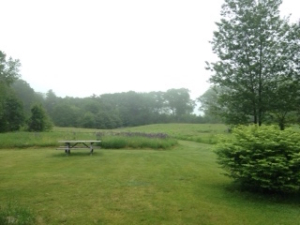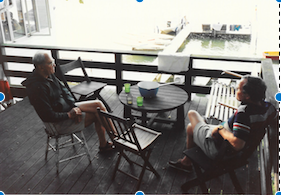May is the month of graduations and Mother’s Day. As my son prepares to graduate from middle school, I find myself noticing his maturity and expanding capacity for observation and thoughtful participation in the wider world. I am a proud mother, happy to see his wings unfolding to test the wind as he grows. I am also aware of my tendency to confuse maturity with independence and notice my growing skepticism of how we define independence. Our totems of independence often seem solitary, stoic and hard-fought. Rarely do we recognize and embrace that independence emerges alongside ongoing reliance on others and the need to remain receptive to accepting and even seeking input, help, and guidance from others. But we could…Imagine the shift for our growing children if we congratulated them on their accomplishments, noted their independence and celebrated their ongoing need to be supported. They might take their next steps more fully aware and accepting of the reality that they will both give and receive for the rest of their lives. Imagine the shift for all of us, our families, and our communities if we celebrated our interdependence.
Our cultural appreciation of independence is subtle and pervasive. At a college graduation, we congratulate young people on their achievements and wish them well in the world. There is no denying that each individual’s tenacity, desire and hard work were the critical guides through their school process, but rarely is education — or life — a solitary experience. Graduation speeches always acknowledge the families, friends, mentors and faculty who supported students in meeting their goals. Most speeches encourage and embolden graduates to have a positive impact on the world as they move along their life’s path. In our messages of “congratulations” and “good luck”, we imply somehow that the pathways ahead will be individual. We remind them that they will work hard and face setbacks as well as rewards. We imply that, done right, the life ahead will include financial independence, setting and meeting goals and some degree of personal satisfaction. There’s usually mention of a “good job” and of the myriad ways in which graduates will make contributions to community and family.
After I graduated from college, I recall taking great pride in being able to pay my own rent and buy my own groceries. My budget was meager, but it was mine. I did not have a clear sense of what I wanted to offer the world and was not particularly driven to find a “good job.” I was content to have a job that paid my bills and a chance to take a breath and focus inward. I had been in school for most of my life and, for the first time ever, I could set and meet my own goals. I trained for and ran a marathon. I had the time and inclination and I wanted to test my capacity to set and meet a goal that had not been delivered to me by a teacher, parent or friend. It seemed novel. I dove into a self-satisfying, perhaps even selfish, independence. I felt the need to test my capacities and explore curiosities. This independence could have been completely solitary if it were not for a few strong friendships that enriched and nourished my sense of self. It only took a year or two before I moved back into community with care and attention to what I had to offer, but it took almost 10 years to recognize the supports and strengths that I gather from my family and community on an ongoing basis. I now notice and embrace the strength and value that exists in openness and vulnerability as well as in independence and decisiveness.
When Thomas and I led trail crews for SCA almost two decades ago, we spent a lot of time and attention on the development of a cooperative, collaborative crew. Leading a group of 6 high school students in complex manual labor while living in the wilderness required attention to individual dispositions while also developing a strong group ethos. Each individual need to work hard, advocate for him or herself and be willing to put personal wishes aside in deference to group needs from time to time. Living in bear country, we all had an obligation to be aware of our surroundings and the whereabouts of our crew-mates at all times. We shared in all responsibilities of work and camp life and students and leaders alike took turns teaching, learning, guiding, planning, cooking and cleaning. This heightened awareness and cooperation was a matter of safety and comfort. It also made our relationships stronger, our work highly effective, and our lifestyle deeply meaningful. Each summer, Thomas and I learned at least as much as our students did.
More recently, when my family stepped in to support my Dad as he was declining with dementia, we were very worried about imposing on his independence by inserting our opinions and “help” in his life. If he said he was fine, who were we to argue? After all, it was his life and he had the right to live as he wanted. But he was becoming anxious, depressed and nervous. Worse, he was losing weight and suffering from skin and digestive problems. It became crystal clear to us that he was not fine when on top of all of these changes, he was clearly no longer able to safely navigate a day in his home and neighborhood. We finally stepped in and pushed him into a move to a graduated care facility. There he began to flourish. He became more and more of himself again — kind, generous, gentle, careful and thoughtful. Over the next three years, he moved twice as his needs advanced. In each move, he blossomed out into the space created by the new, closer boundaries. For my Dad, living in a community of people became a new pathway toward self-actualization. We had been so steeped in the mythology that independence was some sort of optimal mode of living, that we had not even considered the possibility that some select dependencies would re-open pathways to a fulfilling life. Once Dad’s basic needs were met, he felt safe again and returned to the work that had been meaningful to him throughout his life, caring for others.

Maslow’s hierarchy explains why both Dad and our trail crews flourished in highly structured community living. I had seen this social theory before, but had not embraced the reality that basic and psychological needs are sometimes best met by communal effort. The increased risks imposed by dementia in one case and by wilderness on the other were alleviated by increased management and responsibility distributed amongst a number of community members. In a trail crew or in assisted living, one person can start cooking dinner while another breaks into song. Both individuals are contributing to the health and sense of safety of their community, meeting the basic needs of others while, utilizing their talents, they are moving towards self-actualization.
Many schools have given a lot of lip service to collaboration and cooperation in recent years, touting these dispositions as valuable traits for the workplace and helping students to practice them in carefully constructed projects and lessons. But the give and take of community is important, not just in discrete projects or in our work, but in all of the relationships and activities of our our lives. At the Putney School, students gain awareness and respect for their role in community as they participate in the work that sustains the school while maintaining their academic studies. A student’s afternoon may require balancing algebra homework, lacrosse practice, washing dishes in the cafeteria, and cleaning the common room of his dorm. It is an unusual model for a school, but it mirrors “real life”. In a community, we always have responsibility to others, and are always being served by others as well.
In Maine, a small group of dedicated volunteers is building a new senior living facility that is designed and sustained by the ties that connect people to one another. Inn Along the Way is a “collaborative community offering older adults, and those seeking temporary relief from the responsibilities of caregiving, an environment of support, purpose, and sustainability in a multigenerational and mutually interdependent setting.” Maybe it’s a sign of my middle age, but mutual interdependence sounds much more comforting and more rewarding than independence. The vision of Inn Along the Way seems like one worthy of striving towards integrating into our lives regardless of our age and stage.
In Being Mortal, Atul Gawande juxtaposes the 3 and 4 generation homes that persists in his ancestral home, India, against the one and two generation homes that are more common in the U.S. He describes the advantages and challenges of each. Yes, it’s messy either way, but something sounds more natural in the homes and lives of his relatives in rural India. Being surrounded by family members keeps safety nets close and expands rather than contracts each individual’s reach in the world. Gawande’s description is a good reminder that the interdependence that is central to the mission and practices at places like Putney and Inn Along the Way is not new for people, but it has become less common in some cultures over the last two generations.
A healthy ecosystem depends on many interconnected parts, logically, a healthy human system would as well. Perhaps a close look at changing habitats will offer some clues into the potential pitfalls and successes of our changing patterns of lifestyle and relationship and how we might wish to shape them. I’ll leave that exploration for another time. For now, I am content to reconsider the ways in which I practice and honor mutuality in my life.
We all live in reciprocity, constantly both giving and receiving despite the cultural myth that celebrates independence as a sign of optimal functioning. The risks we take by being vulnerable and open to the service of others are nothing compared to the risks we take by honoring individual independence above our community. We rely on family, friends, neighbors and strangers every day — and they are relying on us. What would it take to rebuild our human connectivity? We can start one relationship and one family at a time. There’s no need for isolation. We are in this together.
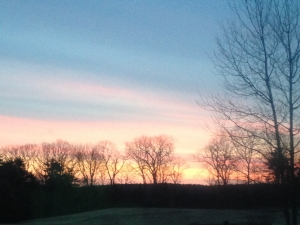 Rising with the sun,
Rising with the sun,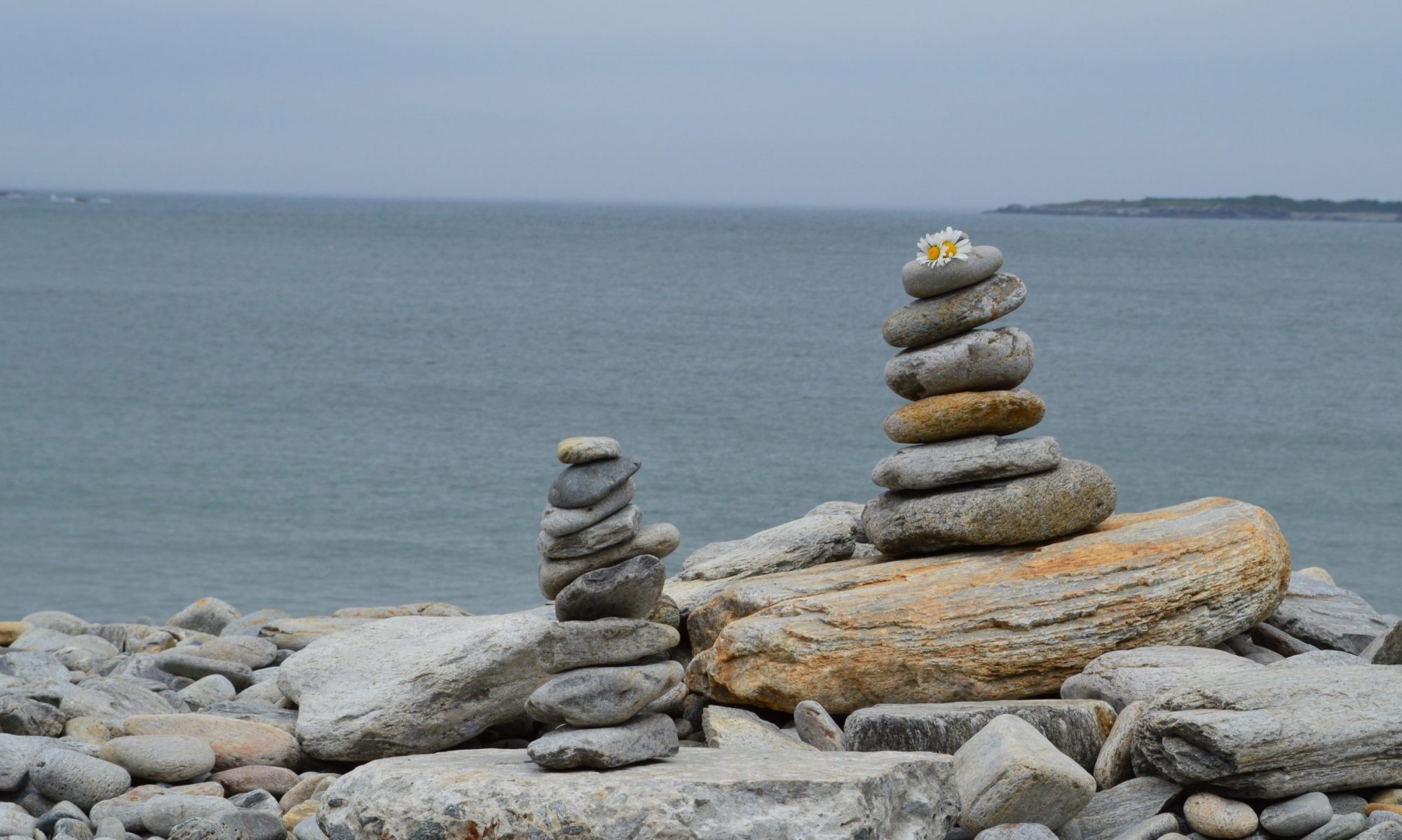
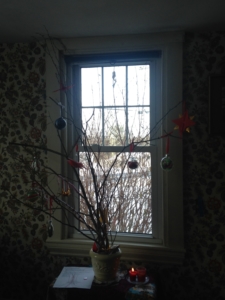
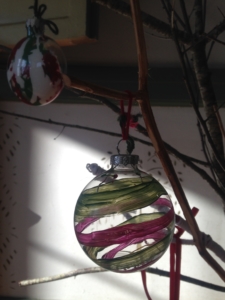
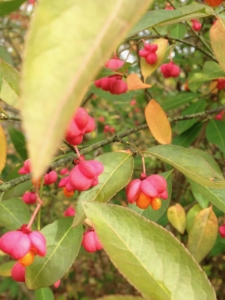 A year ago this week, I sat with my Dad while the hospice chaplain read the Sacrament of the Sick. We had no idea how he would respond to the blessing, or if he would even understand it or be able to attend to it. In fact, he sank right into it. He embraced the potential in the offering so fully that it seemed he heard the permission to notice that his life well-lived was coming to a close and that he was, happily, on death’s doorstep. I described the day at length in
A year ago this week, I sat with my Dad while the hospice chaplain read the Sacrament of the Sick. We had no idea how he would respond to the blessing, or if he would even understand it or be able to attend to it. In fact, he sank right into it. He embraced the potential in the offering so fully that it seemed he heard the permission to notice that his life well-lived was coming to a close and that he was, happily, on death’s doorstep. I described the day at length in  I had spent the weeks between Thanksgiving and Christmas last year almost fully in attendance with Dad. He declined quickly and I was visiting daily. At his bedside, I sometimes chattered aimlessly and nervously and I sometimes sat in quiet stillness. I took long walks at the beach, willing the open air and vast ocean into the consciousness of the room where he lay medicated and drifting in and out of awareness. When I was home, I wandered around in the dark and quiet. I meditated, visualized his transcendence, and slept with a rock from the beach on my chest as a gentle reminder to my spirit to remain with my earthly body when Dad walked away from his. Before he died, all of my brothers arrived and we spent several days by his bedside. We said good-bye many times before Dad took his last breath, but by the time I said my last good-bye, I knew it was really the last one I would to speak. My heart finally let go as the words left my lips.
I had spent the weeks between Thanksgiving and Christmas last year almost fully in attendance with Dad. He declined quickly and I was visiting daily. At his bedside, I sometimes chattered aimlessly and nervously and I sometimes sat in quiet stillness. I took long walks at the beach, willing the open air and vast ocean into the consciousness of the room where he lay medicated and drifting in and out of awareness. When I was home, I wandered around in the dark and quiet. I meditated, visualized his transcendence, and slept with a rock from the beach on my chest as a gentle reminder to my spirit to remain with my earthly body when Dad walked away from his. Before he died, all of my brothers arrived and we spent several days by his bedside. We said good-bye many times before Dad took his last breath, but by the time I said my last good-bye, I knew it was really the last one I would to speak. My heart finally let go as the words left my lips.
